
Josefa Antón Botella
University of Alicante
Spain
EMBO Practical Course
This course will provide a global overview of the different metagenomic approaches to study microbial communities, covering methods for the functional search of genes, sequencing of metagenomes using the most recent technologies and in silico methods for sequence analysis.
During the course, participants will receive an overview of state-of-the-art genomic technologies and bioinformatic tools. A balanced approach of lectures and practical sessions will provide a general background and the latest advancements in the field as well as its relationship with other disciplines.
The course will begin with experimental training in functional metagenomics by preparing metagenomic libraries for gene searching. Metagenomic DNA will be isolated from soil samples to analyze bacterial diversity in situ by third generation sequencing (Nanopore). Cutting edge single-cell microbial genomics using microfluidics will be addressed.
Additionally, students will learn bioinformatics analysis of metagenomic data
sets, from raw sequences to the application of algorithms. Follow-up practical exercises and sessions to discuss experimental design will allow students to learn and test their knowledge.
In summary, this course will allow participants to work through the entire workflow, from sample preparation to in silico data analysis.
This course is aimed at advanced PhD students and post-doctoral researchers who are doing or planning to start research in the field of metagenomics.
“This course gave me the opportunity to learn from my coursemates and understand the software used in metagenomics. The speakers were friendly and are always ready to answer our research questions, and provide us with valuable advice and comments.” – Lee Hwei Huih, The University of Hong Kong
This event has been granted the following EMBO sustainability badge:


University of Alicante
Spain
National Institute for Health and Medical Research (Inserm)
France
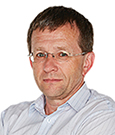
EMBL Heidelberg
Germany
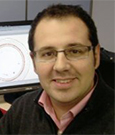
FISABIO Sequencing and Bioinformatics
Spain
Tübingen University
Germany

EMBL Heidelberg
Germany
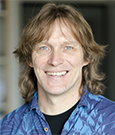
Tübingen University
Germany
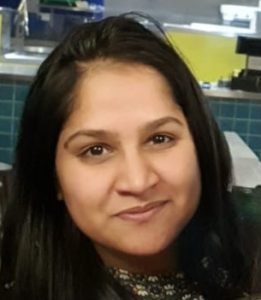
EMBL-EBI Hinxton
UK
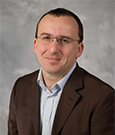
Georgia Institute of Technology
USA
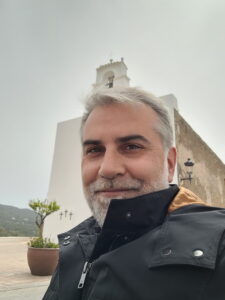
Microbial Ecology, Museo Nacional de Ciencias Naturales
Spain
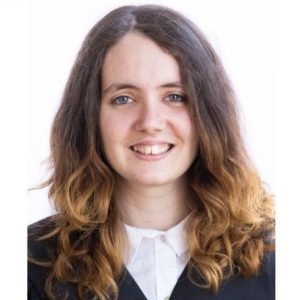
EMBL Heidelberg
Germany
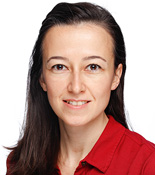
EMBL Heidelberg
Germany

Pontificia Universidad Católica de Chile
Chile

Heidelberg University
Germany
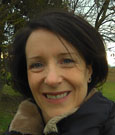
French National Institute for Agricultural Research (INRA)
France
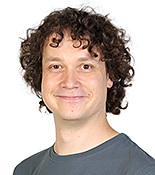
EMBL Heidelberg
Germnay

FISABIO Sequencing and Bioinformatics
Spain

University of Innsbruck
Austria

EMBL Heideilberg
Germany

EMBL Heidelberg
Germany
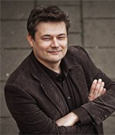
University of Zagreb
Croatia
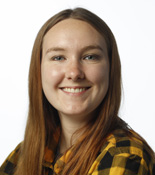
EMBL Heidelberg
Germany

Pontificia Universidad Católica de Chile
Chile
(Virtual Speaker)
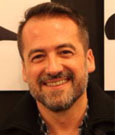
Centro de Astrobiología (CSIC-INTA)
Spain
He was a key organiser of this course.
We honour his legacy, friendship, and contributions.

EMBL Heidelberg
Germany

FISABIO Sequencing and Bioinformatics
Spain
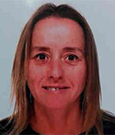
Hospital Can Misses
Spain

EMBL Heidelberg
Germany

Course and Conference Team Lead
EMBL Heidelberg
Germany

Scientific Training Manager
Swetlana Krez
EMBL Heidelberg

Scientific Training Officer
EMBL Heidelberg
Germany
Are you on social media? Post using #EMBOMetaG and don’t forget to tag @EMBLEvents.
| Time (Europe/ Berlin) | Speaker | Location |
|---|---|---|
| 16:00 – 17:00 | Overview of pre-course work, introduction to course content on EMBL eCampus and troubleshooting Giuseppe D’Auria – FISABIO, Spain Kostas Konstantinidis – Georgia Institute of Technology, USA Elisabeth Zielonka – EMBL Heidelberg, Germany | Virtual – Zoom meeting |
| Time (Europe/ Berlin) | Session | Location |
|---|---|---|
| 09:00 – 09:30 | Welcome, house notes and safety | Courtyard Room A & B |
| 09:30 – 09:45 | Welcome and Introductions Elisabeth Zielonka – EMBL Heidelberg, Germany | Courtyard Room A & B |
| 09:45 – 10:45 | Flash talks participants 2 min per participant | Courtyard Room A & B |
| 10:45 – 11:00 | Break | Courtyard Room A & B |
| 11:00 – 12:00 | Metagenomics: Concepts, historical milestones and next advance Giuseppe D’Auria – FISABIO, Spain | Courtyard Room A & B |
| 12:00 – 13:00 | Lunch | EMBL Canteen |
| 13:00 – 14:00 | Metagenomics library preparation for NGS Vladimir Benes – EMBL Heidelberg, Germany | Courtyard Room A & B |
| 14:00 – 15:00 | Group Activity – Participants challenges, expectations and case studies Elisabeth Zielonka – EMBL Heidelberg, Germany | Courtyard Room A & B |
| 15:00 – 16:00 | The impact of Metagenomics, on genes and genomes discovery Gabrielle Potock i- Veronese -INRA-LISBP, France | Courtyard Room A & B |
| 16:00 – 16:30 | Break | Courtyard Room A & B |
| 16:30 – 17:30 | Metagenomics and other culture-independent tools to study virus communities Josefa Antón Botella – University of Alicante, Spain | Courtyard Room A & B |
| 17:30 – 20:00 | Poster Session 1 and pizza dinner | ATC Rooftop lounge |
| 20:00 | Bus to ISG Hotel | Courtyard Room A & B |
| Time (Europe/ Berlin) | Session | Location |
|---|---|---|
| 09:00 – 10:45 | Practical: Extraction of metagenomic DNA in groups from soil samples Raul Munoz Jimenez – Microbial Ecology, Museo Nacional de Ciencias Naturales, Spain Mireia Osuna Lopez – EMBL Heidelberg, Germany Hilal Ozgur – EMBL Heidelberg, Germany Jessica Lynn Sutter – EMBL Heidelberg, Germany Daphne Welter – EMBL Heidelberg, Germany | Training Lab B |
| 10:45 – 11:15 | Break | Courtyard Room A & B |
| 11:15 – 12:45 | Practical: Quality control of DNA samples (Gel analysis, Qubit assay) Nanopore 16S PCR set up Raul Munoz Jimenez – Microbial Ecology, Museo Nacional de Ciencias Naturales, Spain Mireia Osuna Lopez – EMBL Heidelberg, Germany Hilal Ozgur – EMBL Heidelberg, Germany Jessica Lynn Sutter – EMBL Heidelberg, Germany Laura Villacorta – EMBL Heidelberg, Germany Daphne Welter – EMBL Heidelberg, Germany | Training Lab B |
| 12:45 – 13:45 | Lunch | EMBL Canteen |
| 13:45 – 14:30 | Discussion of metagenomic DNA Extraction Results Giuseppe D’Auria – FISABIO, Spain Raul Munoz Jimenez – Microbial Ecology, Museo Nacional de Ciencias Naturales, Spain | Courtyard Room A & B |
| 14:30 – 15:30 | Practical introduction: Single cells genomics in droplets Tobias Wenzel – Pontificia Universidad Católica de Chile, Chile (Virtual speaker) | Courtyard Room A & B |
| 15:30 – 16:45 | Practical: Nanopore: 16S PCR cleanup, finishing library preparation and starting sequencing run, followed by Genomics Core Facility Tour Mireia Osuna Lopez – EMBL Heidelberg, Germany Hilal Ozgur – EMBL Heidelberg, Germany Jessica Lynn Sutter – EMBL Heidelberg, Germany Daphne Welter – EMBL Heidelberg, Germany | Training Lab B |
| 16:45 – 17:15 | Break | Courtyard Room A & B |
| 17:15 – 19:15 | Practical: Nanopore: 16S analysis/ DNA cleanup and Sequencing start followed by Genomics Core Facility Tour Mireia Osuna Lopez – EMBL Heidelberg, Germany Hilal Ozgur – EMBL Heidelberg, Germany Jessica Lynn Sutter – EMBL Heidelberg, Germany Daphne Welter – EMBL Heidelberg, Germany | Training Lab B |
| 19:15 – 19:30 | Bus to ISG Hotel | EMBL bus stop |
| 20:00 | Dinner at ISG Hotel |
| Time (Europe/ Berlin) | Session | Location |
|---|---|---|
| 09:00 – 09:45 | Practical: Test digestion conditions for metagenomic DNA and preparation of agarose gels Raul Munoz Jimenez – Microbial Ecology, Museo Nacional de Ciencias Naturales, Spain Jessica Lynn Sutter – EMBL Heidelberg, Germany Daphne Welter – EMBL Heidelberg, Germany | Training Lab B |
| 09:45 – 10:45 | What brings a metagenomic approach in cardiometabolic and nutrition-related disorders? Eugeni Belda – National Institute for Health and Medical Research (Inserm), France | Courtyard Room A & B |
| 10:45 – 11:15 | Break | Courtyard Room A & B |
| 11:15 – 11:45 | Practical: Loading agarose gels of test-digestion Raul Munoz Jimenez – Microbial Ecology, Museo Nacional de Ciencias Naturales Jessica Lynn Sutter – EMBL Heidelberg, Germany Daphne Welter – EMBL Heidelberg, Germany | Training Lab B |
| 11:45 – 12:45 | Lunch | EMBL Canteen |
| 12:45 – 14:15 | Practical: Analysis of test-digestion Scale-up of digestion of metagenomic DNA for cloning in the libraries Load gel of scale-up (once that digestion conditions are determined) Raul Munoz Jimenez – Microbial Ecology, Museo Nacional de Ciencias Naturales, Spain Jessica Lynn Sutter – EMBL Heidelberg, Germany Daphne Welter – EMBL Heidelberg, Germany | Training Lab B |
| 14:15 – 14:45 | Break (gel runs meanwhile) | Courtyard Room A & B |
| 14:45 – 16:45 | Practical: Purification from gel of the digested metagenomic DNA Cloning of the metagenomic DNA + overnight ligation Raul Munoz Jimenez – Microbial Ecology, Museo Nacional de Ciencias Naturales, Spain Jessica Lynn Sutter – EMBL Heidelberg, Germany Daphne Welter – EMBL Heidelberg, Germany | Training Lab B |
| 16:45 – 17:45 | Practical: Preparing bacterial cultures for droplet generation and demonstration of the droplet generation set-up Patrick Hasenfeld – EMBL Heidelberg, Germany Pierre Padilla Huamantinco – Pontificia Universidad Católica de Chile, Chile Sadaf Pashapour – Institute for Molecular Systems Engineering and Advanced Materials (IMSEAM), Heidelberg, Germany Tobias Wenzel – Pontificia Universidad Católica de Chile, Chile | Training Lab B |
| 17:45 – 18:15 | Break | Courtyard Room A & B |
| 18:15 – 19:30 | Droplet generation in groups Patrick Hasenfeld – EMBL Heidelberg, Germany Pierre Padilla Huamantinco – Pontificia Universidad Católica de Chile, Chile Sadaf Pashapour – Institute for Molecular Systems Engineering and Advanced Materials (IMSEAM), Heidelberg, Germany Tobias Wenzel – Pontificia Universidad Católica de Chile, Chile | Training Lab B |
| 19:30 – 20:30 | Dinner | EMBL Canteen |
| 20:30 | Bus to ISG Hotel | EMBL bus stop |
| Time (Europe/ Berlin) | Session | Location |
|---|---|---|
| 09:00 – 11:00 | Practical: Inactivation of Ligase, Dialysis, Transformation of E.Coli (Electroporation) Raul Munoz Jimenez – Microbial Ecology, Museo Nacional de Ciencias Naturales | Training Lab B |
| 11:00 – 12:00 | Methodological discussion of practical session 1: Metagenomics experimental design: Common shortcoming and pitfalls Raul Munoz Jimenez – Microbial Ecology, Museo Nacional de Ciencias Naturales | Flex Lab A & B |
| 12:00 – 13:00 | Lunch | EMBL Canteen |
| 13:00 – 15:00 | Practical: Solving problems and questions: Introduction to Linux and R based on pre-recorded lecture 1 and 2 Giuseppe D’Auria – FISABIO, Spain | Computer Training Lab |
| 15:00 – 16:00 | Pratical: Comparison of sequencing technologies Nanopore, 16S, PacBio Giuseppe D’Auria – FISABIO, Spain | Computer Training Lab |
| 16:00 – 16:30 | Break | Courtyard Room A & B |
| 16:30 – 17:30 | Pacific Bioscience (PacBio) sequencing for metagenomics Vladimir Benes – EMBL Heidelberg, Germany | Courtyard Room A & B |
| 17:30 – 18:00 | Bus back to ISG hotel and Downtown | EMBL bus stop |
| 18:00 – 18:30 | Free evening |
| Time (Europe/ Berlin) | Session | Location |
|---|---|---|
| 09:00 – 09:45 | Practical: Analysis of some colonies from the metagenomic libraries -Interpretation of results Raul Munoz Jimenez – Microbial Ecology, Museo Nacional de Ciencias Naturales | Training Lab B |
| 09:45 – 11:45 | Practical: Visualization of Droplets and discussion about microfluidic designs Patrick Hasenfeld – EMBL Heidelberg, Germany Pierre Padilla Huamantinco – Pontificia Universidad Católica de Chile, Chile Sadaf Pashapour – Institute for Molecular Systems Engineering and Advanced Materials (IMSEAM), Heidelberg, Germany Tobias Wenzel – Pontificia Universidad Católica de Chile, Chile | Training Lab B |
| 11:45 – 12:45 | Lunch | EMBL Canteen |
| 12:45 – 13:45 | Functional and taxonomic analysis with MGnify Varsha Kale – EMBL-EBI, Hinxton, UK | Computer Training Lab |
| 13:45 – 15:45 | Practical: Functional and taxonomic analysis with MGnify Varsha Kale – EMBL-EBI, Hinxton, UK | Computer Training Lab |
| 15:45 – 16:15 | Break | |
| 16:15 – 17:00 | EPI2ME and data analysis of Nanopore 16S soil samples Giuseppe D’Auria – FISABIO, Spain Jan Provaznik – EMBL Heidelberg, Germany | Courtyard Room A & B |
| 17:00 – 18:00 | Metabolomic profiling of microbial communities Mariana Reyes Prieto – FISABIO, Spain | Computer Training Lab |
| 18:00 – 20:00 | Poster session with tapas dinner | ATC Rooftop lounge |
| 20:00 | Bus back to the ISG Hotel | EMBL bus stop |
| Time (Europe/ Berlin) | Session | Location |
|---|---|---|
| 09:00 – 12:30 | Introduction to 16S rDNA profiling (Illumina/PacBio) Practical 6: 16S rDNA profiling (Illumina/PacBio) Mariana Reyes Prieto – FISABIO, Spain Flexible break | Computer Training Lab |
| 12:30 – 13:30 | Lunch | EMBL Canteen |
| 13:30 – 14:45 | Practical: Practice to 16S rDNA profiling (Illumina/PacBio) Mariana Reyes Prieto – FISABIO, Spain | Computer Training Lab |
| 14:45 – 15:15 | Break | Courtyard Room A & B |
| 15:15 – 17:00 | Practical: Genome-Resolved Metagenomic Kostas Konstantinidis – Georgia Institute of Technology, USA Luis-Miguel Rodriguez-R- University of Innsbruck, Austria | Computer Training Lab |
| 17:00 – 17:30 | Break | Courtyard Room A & B |
| 17:30 – 19:30 | Practical: Genome-Resolved Metagenomic Kostas Konstantinidis – Georgia Institute of Technology, USA Luis-Miguel Rodriguez-R University of Innsbruck, Austria | Computer Training Lab |
| 19:30 – 20:30 | Dinner | EMBL Canteen |
| 20:30 | Bus back to the ISG Hotel |
| Time (Europe/ Berlin) | Session | Location |
|---|---|---|
| 09:00 – 11:15 | Practical: Metagenomic assembly, ORF finding, functional annotation. Giuseppe D’Auria – FISABIO, Spain | Computer Training Lab |
| 11:15 – 11:30 | Break | Courtyard Room A & B |
| 11:30 – 12:30 | Analysis Tools Overview: INCA, MILC and MELP Kristian Vlahovicek – University of Zagreb, Croatia | Computer Training Lab |
| 12:30 – 13:30 | Lunch | EMBL Canteen |
| 13:30 – 15:30 | Practical: INCA Kristian Vlahovicek – University of Zagreb, Croatia | Computer Training Lab |
| 15:30 – 16:00 | Break | Courtyard Room A & B |
| 16:00 – 18:00 | Student presentation preparation time: Case Studies All trainers and speakers | Courtyard Room A & B |
| 18:00 – 19:00 | Bus Downtown | |
| 19:00 – 21:30 | Dinner Downtown | |
| 21:30 | Bus back to the ISG Hotel |
| Time (Europe/ Berlin) | Session | Location |
|---|---|---|
| 09:45 – 11:45 | Practical: Metagenomic analysis using DIAMOND+MEGAN Anupam Gautam – University of Tübingen, Germany Daniel Huson – University of Tübingen, Germany | Computer Training Lab |
| 11:45 – 12:45 | Lunch | EMBL Canteen |
| 12:45 – 13:45 | Practical: Metagenomic analysis using DIAMOND+MEGAN Anupam Gautam – University of Tübingen, Germany Daniel Huson – University of Tübingen, Germany | Computer Training Lab |
| 13:45 – 15:15 | Group activity and presentations: Case Studies Vladimir Benes – EMBL Heidelberg, Germany Giuseppe D’Auria – FISABIO, Spain Elisabeth Zielonka -EMBL Heidelberg, Germany | Courtyard Room A & B |
| 15:15 – 15:45 | Wrap-up and conclusions | Courtyard Room A & B |
| 15:45 – 16:00 | Bus to Heidelberg train station and Downtown | EMBL bus stop |
The course is limited to 20 participants. For selection purposes, please note that your application will not be considered without a letter of motivation.
Registration fees include admission, course materials, meals and coffee breaks. This EMBO course includes accommodation and transportation to and from the ISG Hotel to the venue
| Academia | €550 |
| PhD Student | €550 |
| Industry | €1100 |
A letter to support your visa application will be issued, on request, once payment of the registration fee is confirmed. We recommend that you book your visa appointment as soon as possible, to avoid any delay with your visa application.
The registration fee should be paid only after acceptance to the course. The results will be announced approximately 2-3 weeks after the application deadline.
After you have logged in and successfully registered, you will receive an email asking you to submit your motivation letter. Click on the link provided and enter your motivation letter in the text box provided. Alternatively you can submit your motivation letter by clicking on the link on the confirmation page directly after registering.
Instructions
Please note:
For detailed instructions, please watch our video on how to submit a course motivation letter.
For further information about registration and motivation letter submission please refer to the FAQ page.
Limited financial assistance is provided by the EMBL Advanced Training Centre Corporate Partnership Programme and EMBO in the form of registration fee waivers and childcare grants.
Your place in the meeting is only confirmed by paying the registration fee, which is mandatory even when receiving a fee waiver.
Limited financial assistance is provided by the EMBL Advanced Training Centre Corporate Partnership Programme and EMBO in the form of registration fee waivers, travel grants and childcare grants.
Your place in the meeting is only confirmed by paying the registration fee, which is mandatory even when receiving a fee waiver.
The fee waiver will cover the registration sum that you have paid to attend the course.
The travel grant will cover the cost of travel (airfare, train, bus, taxi, accommodation, visa, and/or registration fees*) and is provided up to specified caps which are normally as follows:
– up to €400 for participants travelling to an EMBL Course within Europe.
– up to €1000 for participants travelling to an EMBL Course from outside Europe.
– up to €500 for any participant travelling to an EMBO Practical Course.
– up to €1000 for any participant working in Chile, India, Singapore or Taiwan travelling to an EMBO Practical Course.
*Registration fees are only covered for EMBO Practical Courses
The organisers may reduce the grant cap to accommodate more participants. Recipients will be notified of their travel cap amount when they are informed of the outcome of their application. Original receipts must be provided with your signature for all costs incurred within two months of completion of travel. Scanned copies cannot be accepted.
There is the possibility to apply for a childcare grant to offset child care costs incurred by participants, speakers, trainers and organisers when attending a course. Eligible costs include (but are not limited to) fees for a babysitter or child-care facility and travel costs for a caregiver. Please note that priority will be given to early-stage researchers. There is a limited amount of funding available for the childcare grants and funds will be distributed amongst eligible applicants.
Applies to selected courses only. Availability will be indicated during the abstract or motivation letter submission process.
This grant covers costs related to your attendance to the course (registration, travel and accommodation costs). The grant is restricted to PhD students and postdocs who conduct basic biomedical research.
Whether you are eligible to apply for a travel grant, depends on when you received your university entrance qualification (e.g. Abitur, A-Levels, High School Diploma, Final State Examination):
– for PhD and MD students, as well as graduates, the university entrance qualification must not have been obtained more than 11 years ago at the time of the envisaged course
– for postdocs, the university entrance qualification must not have been obtained more than 13 years ago at the time of the envisaged course
If you are attending virtually, you can apply for financial assistance in the submission portal by the abstract deadline. Read the instructions on how to apply for financial assistance. Only submissions for financial assistance will be accepted. Presentation abstracts cannot be submitted here and will be declined.
In your application you will be asked to summarise your current work, answer questions regarding why your lab cannot fund your attendance, and how your attendance will make a difference to your career. Application for financial support will not affect the outcome of your registration application.
*For some events, applications for Childcare Grants will still be done by email. Information about the grant will be sent out shortly after the abstract/motivation letter deadline. Please contact the event Conference Officer if you have any questions.
The scientific organisers will select the recipients of registration fee waivers during the participant selection process for courses. Results will be announced approximately 6 – 8 weeks before the event start date, however for some events this may be delayed. Selection results do not impact your admission to the meeting. Selection for registration fee waivers and travel grants is based on scientific merit, your current work or study location, the reasons for needing financial support, and the impact this event will have on your career.
Childcare grants will be allocated in the same timeframe (6-8 weeks before the event start date). Please note that priority will be given to early-stage researchers.
Check out this list of external funding opportunities.
For further information about financial assistance please refer to the FAQ page.
Accommodation in twin rooms, including breakfast is included in the registration fee. Accommodation will be booked for the selected participants at the ISG Hotel for the default dates of Sunday 6 April to Monday 14 April (8 nights).
In case you would like to have a single room, please let the hotel know and please note that you will be required to pay an additional cost of 32€ per night (availability of single rooms may be limited). This should be paid by you directly to the ISG Hotel during your stay.
We recommend that all course participants stay at the ISG Hotel for the course.
For travel information, please see here.
If you are travelling to the conference within Germany then you are eligible for the Deutsche Bahn ‘Event Ticket’ (called the ‘Veranstaltungsticket’ in German). This will result in a lower ticket price if your travel distance to Heidelberg is more than 100 km. You need to provide proof of your event attendance when purchasing the ticket.
For more information in English see here or in German see here.
You can book your ticket here.
Shuttle buses will go from the ISG Hotel to EMBL and back, mornings and evenings. A bus schedule and location of the bus stops will be made available prior to the meeting.
Address: EMBL Heidelberg, Meyerhofstraße 1, 69117 Heidelberg, Germany
For more information about accommodation and travel, please refer to the FAQ page.
All meals and coffee breaks are included in the registration fee. Our catering staff will prepare a wide variety of vegetarian meals, meat and fish dishes, soups, pasta, fresh fruit and vegetables, as well as a variety of desserts.
Please wear your badge at all times when serving yourself.
No food or drinks are allowed in the laboratories.
In most places the electricity is 220 volts AC (50 cycles). An adaptor and a plug that fits the German socket may be needed for your appliances/laptop (i.e. American, Japanese, etc.). A USB charging station for electronic devices is available at the registration desk..
If you are interested in purchasing EMBL merchandise (products presented in the glass display in the registration area), please email the EMBL shop to place an order or get in contact with your Course Organiser.
Kindly note the EMBL shop is only open upon request and all purchases must be made in cash (Euros only).
Please read EMBL’s COVID-19 safety policy for on-site events.
Do not smoke in any EMBL building.
Eating and drinking is prohibited in all laboratories.
Do not enter any restricted areas or the laboratories unless instructed to do so.
If first aid is required …
In case of fire …
Beyond first aid…
Please remember to bring your own medication, if needed, to the conference. Note that the next pharmacy is a 4-minute drive from the EMBL, but for many medications you will be required to see a doctor to get a prescription.
Ensure in advance that your medical insurance will cover you during your visit in the event that you do need to see a doctor while in Heidelberg. In any case, the EMBL Course and Conference Office will assist you to get to the pharmacy and a doctor of your choice if necessary.
Wi-Fi is available on campus. Log in using the EMBL-Events network and the event specific password, which will be provided on site. The eduroam network (secure, worldwide roaming access service developed for the international research and education community) is also available.
‘’Lost and Found’’ items are kept at the registration desk until the end of the conference.
There are lockers available on-site to store your luggage, which require a 2 EURO coin to operate. There is another luggage room on level E0, which is free to use but remains unlocked during the conference.
There is a nursing room available in the ATC Rooftop Lounge on level A29.
During the conference, an EMBL Photographer may be taking photos. If you would not like to appear in these, please inform the photographer or a member of the Course and Conference Office.
We can help to print your boarding pass/train ticket. Please send it to events@embl.de and collect your print-outs at the registration desk.
There is a room for prayer, meditation, and yoga located on level E0 behind the Auditorium. Please be respectful of others using the room.
A variety of activities in Heidelberg can be found on the website of Heidelberg Marketing.
During the event, we provide conference shuttle buses to and from EMBL. In addition, there is the public bus 39A that serves the EMBL campus and taxis can be easily booked at any time. Information on the shuttle buses can be found on the individual event website and more detailed information on travelling to EMBL can be found on our Travel Information page.
The EMBL eCampus learning platform will be used to collaborate, communicate and network with all of the course participants. All participants will receive information on how to join shortly before the course. We recommend using Chrome, Safari or Mozilla Firefox browsers for eCampus.
DELETE THIS TAB IF COURSE IS NOT HYBRID!!
Additional information can be found in our Code of Conduct.
It is important to stay healthy and move around, especially when you are attending an event virtually. We have put together a few coffee break stretches and yoga videos in eCampus for you to enjoy during the event.
Questions during and after the talks can be asked in the live streaming platform. If time runs out or you think of a question later, you can use the EMBL eCampus forum or send a direct message to the speaker/trainer.
The programme is planned based on the Europe/Berlin time zone, unless otherwise stated. As many virtual participants are attending from around the world, we do our best to accommodate as many time zones as possible when creating the programme. Please take your time zone into consideration when planning your attendance.
Please find additional information including FAQs and terms and conditions on our Information for Participants page.
Event sponsors:
Event supporters:
Sponsorship opportunities
We offer a variety of event sponsoring possibilities, with the flexibility to select a set sponsorship package or combine individual sponsorship options to suit your event budget. Discounts are available for companies sponsoring multiple events at EMBL Heidelberg. View other events, or contact sponsorship@embl.de for further information.
If you are interested in becoming a media partner of this event, please visit our media partnerships webpage.
EMBL wishes to warn sponsors of EMBL conferences and courses of fraudulent schemes purporting to offer sponsorship opportunities on behalf of EMBL or affiliated with EMBL officials. One current scam campaign of which we are aware is conducted using the name ‘Judy Eastman’ (judy@gopcontact.a2hosted.com) and entails approaches to sponsors offering sponsorship opportunities on EMBL’s behalf. Please be kindly advised that all relevant communication regarding sponsorship of EMBL conferences, symposia and courses is handled by EMBL directly and is sent from an official EMBL account. EMBL does not work with any external providers on sponsorship acquisition.
Please also note that:
Suspicious communications purportedly from, for or on behalf of EMBL should be reported to EMBL at the following email address sponsorship@embl.de.
Want to let others know you’re attending this event? Take a look at our shareable media and feel free to use them in your social media channels or presentations.

Date: 7 - 14 Apr 2025
Location: EMBL Heidelberg
Venue: EMBL Advanced Training Centre
Deadline(s):
Application: Closed
Organisers:
Contact: Maria Bacadare